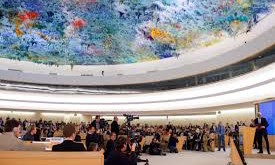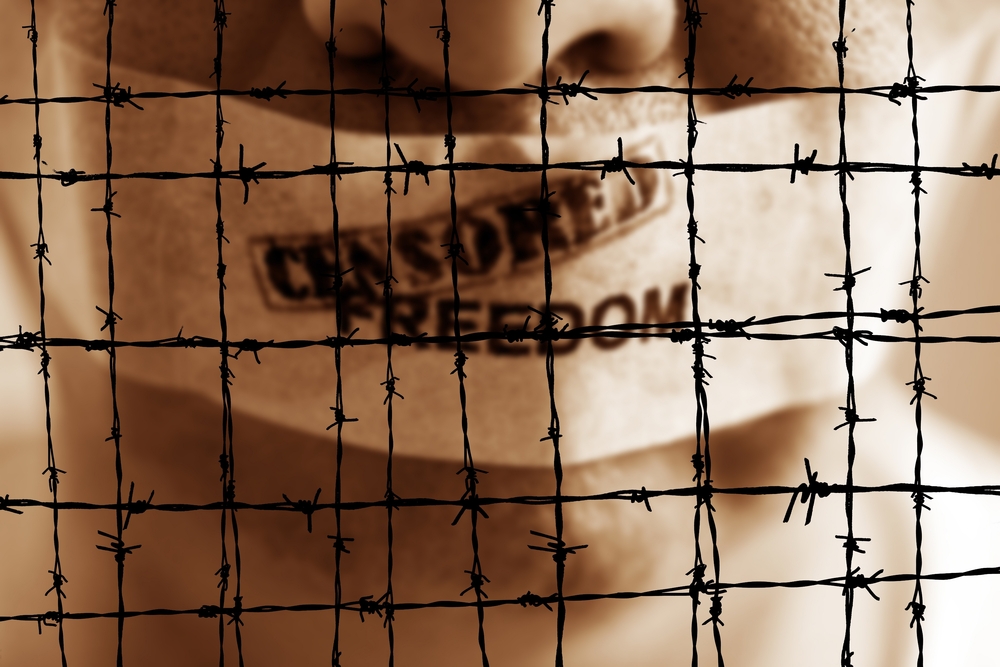(19 April 2016) The African Centre for Justice and Peace Studies (ACJPS) together with the International Federation for Human Rights (FIDH) and the International Refugee Rights Initiative (IRRI) today published a joint briefing for UN member states setting out key concerns and recommendations to improve the human rights situation in …
Read More »NGO Letter regarding human rights situation at 30th session of the UN Human Rights Council
A pdf version of the letter is available here. To Permanent Representatives of Members and Observer States of the UN Human Rights Council Geneva, 3 September 2015, RE: Gravely deteriorating human rights and humanitarian situation in Sudan Excellency, We write to share our serious concerns about the deteriorating human rights …
Read More »Update: Continued arbitrary detention and criminal charges against individuals in connection with Sudan’s elections
(12 May 2015) Sudan has continued to detain and intimidate human rights defenders and political opponents in the wake of its national elections that saw the re-election of President Omar al Bashir with 94% of the vote. Prominent human rights defender Jaafar Khidir was detained without charge for three days …
Read More »Sudan’s Electoral Period Marred by Arrests and Incommunicado Detention; insecurity in Darfur
(17 April 2015) Sudan’s national general elections began on 13 April 2015. Scheduled to end on 15 April, they were extended one day by the National Elections Commission (NEC) to account for low voter turnout. In the days leading up to and during the elections and the voting period, ACJPS …
Read More »Detentions, civil society closures, media restrictions on eve of Sudan elections
You can view the Arabic version of this press release here. Sudan lacks conducive environment for the conduct of free and fair elections (12 April 2015) Sudan’s national general elections will begin on 13 April 2015. For the African Centre for Justice and Peace Studies (ACJPS) and the International Federation …
Read More »Joint ACJPS/FIDH Op-ed: Sudan, another five years of a bloody regime?
This joint op-ed was published in English by Africa Report, and in French by Le Monde. The French translation is at the bottom of this page. Sudan’s 13 April Presidential and parliamentary elections, the second to be held since a military coup d’État brought Omar al Bashir to power in …
Read More »23 NGOs call on AU to halt support to Sudan’s elections in line with the African Charter on Democracy, Elections and Governance
27 March 2015 Addis Ababa, Ethiopia H.E. Chairperson Dr. Nkosazana Dlamini Zuma, African Union Commission, H.E. President Thabo Mbeki, Chair of the AU High-Level Implementation Panel, Excellencies, Representatives of the AU Peace and Security member states, Your Excellencies, We, the undersigned Sudanese, African and Arab civil society organizations, wish to …
Read More »Sifting through Shattered Hopes: Assessing the Electoral Process in Sudan
From 11 – 15 April, Sudan held its first multiparty elections in 24 years. Elections were an essential benchmark of the Comprehensive Peace Agreement (CPA) which brought the 22-year civil war to a close, and was signed by the National Congress Party (NCP) and the Sudan Peoples’ Liberation Movement (SPLM). The CPA provides a framework for legal and constitutional changes to take place over a six year interim period, ending with the 2011 referenda for self determination in the South of Sudan and Abyei, and popular consultations in the Nuba Mountains and Blue Nile. Elections had been included in the CPA as a mechanism for both addressing the key cause of the conflict – namely the exclusion of Sudanese citizens from political participation – and also to lend popular support to the 2011 referenda and to ensure that the process of separation would be overseen by a democratically elected government. Elections provided a critical opportunity to address both the challenges of the CPA and to advance political openness in Sudan. In some respects, the elections represented a significant step forward. A generation of Sudanese who had never before exercised their right to vote had the opportunity to do so. Political campaigning offered a unique opportunity to engage in political issues critical to the nation.
Read More »Building on a Cracked Foundation
On 1 November 2009, registration for national elections slated to be held in April 2010 began throughout Sudan. Originally intended to end on 30 November, the process was extended one week until 7 December as many election stakeholders requested the National Elections Commission (NEC) to extend the registration period. The registration – a critical first step in the electoral process – occurred against the backdrop of a contentious political environment marked by political obstruction of peaceful political activities and human rights abuses, and an overall tightening of restrictions on civil and political freedoms. According to the NEC, at least 75.8% of eligible Sudanese were registered, which was quite close to the national target of 80%. This aggregate figure represents a 71% rate of registration of the eligible electorate in the North, and 98% in the South, respectively.1 The accuracy of these statistics, however, is thrown into doubt by dispute over the results of the 2008 census, which forms the basis of the estimation of potential voters. In South Sudan, there was particular pressure to register as a means of compensating for, or disputing, census figures which were felt to grossly underestimate the population of the South. Some of the states in the South have exceeded in registering over 100 % of eligible voters, according to the census.
Read More » African Centre for Justice and Peace Studies ACJPS | المركز الافريقي لدراسات العدالة و السلام
African Centre for Justice and Peace Studies ACJPS | المركز الافريقي لدراسات العدالة و السلام




